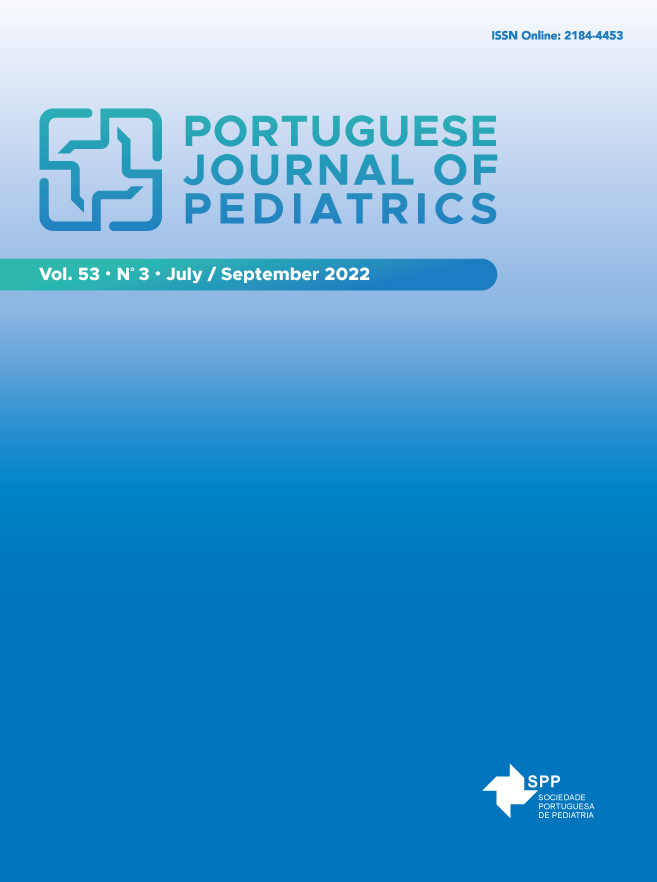Neonatal Alloimmune Neutropenia: 10 Year Experience in Portugal
DOI:
https://doi.org/10.25754/pjp.2022.25608Abstract
Introduction: Neonatal alloimmune neutropenia is a rare condition often resulting from maternal sensitization to paternal human neutrophil antigens present on the fetal neutrophils. There is a paucity of data on neonatal alloimmune neutropenia in Portugal. This study aimed to describe the cases of neonatal alloimmune neutropenia diagnosed in a Portuguese laboratory unit of cytometry and genetics.
Methods: An observational retrospective study was conducted on 12 newborns suspected of having neonatal alloimmune neutropenia referred to our laboratory from 2010 to 2019. Descriptive statistical analysis of the laboratory results, clinical data, outcomes, and management was performed.
Results: A total of 10 patients with neonatal alloimmune neutropenia were included in this study, of whom seven were female. The mean gestation age was 34 ± 4 weeks. The median age and absolute neutrophil count at the time of diagnosis were 1 day (interquartile range 0) and 230 cells/μL (interquartile range 550). All cases had incompatible human neutrophil antigens genotypes: human neutrophil antigen 1a (three cases), human neutrophil antigens 1b (six cases), and human neutrophil antigens 3a (two cases). Moreover, two cases were incompatible with two human neutrophil antigens polymorphisms and eight infants developed infections in the first months of life. All infections involved hospitalization. The median number of infections per patient was one (interquartile range 1). Two newborns received neonatal alloimmune neutropenia directed treatment. Neutropenia resolution occurred at a median age of 58 days (interquartile range 65).
Discussion: The human neutrophil antigens maternal-fetal incompatibilities found in Portugal were consistent with the available literature. Most clinicians had a vigilant attitude, without therapy, towards neonatal alloimmune neutropenia, even when severe neutropenia and infection were present. We encourage pediatricians to investigate neonatal alloimmune neutropenia in newborns with neutropenia without other established causes.
Downloads
Downloads
Published
Issue
Section
License

This work is licensed under a Creative Commons Attribution-NonCommercial-NoDerivatives 4.0 International License.









